Born in 1951, David Horsey is a distinguished American editorial cartoonist and commentator. His remarkable career in editorial cartoons has left an indelible mark. His cartoons graced the pages of the Seattle Post-Intelligencer from 1979 until December 2011, and since then, they have been a prominent feature in the Los Angeles Times. David Horsey’s insightful and thought-provoking cartoons reach a broad audience, as they are syndicated to newspapers nationwide by the esteemed Tribune Content Agency. His exceptional talent and contributions to the field were duly recognized when he received the prestigious Pulitzer Prize for Editorial Cartooning twice, first in 1999 and then again in 2003.
| Full Name | David Horsey |
|---|---|
| Birth Year | 1951 |
| Nationality | American |
| Profession | Editorial Cartoonist and Commentator |
| Notable Awards | Pulitzer Prize for Editorial Cartooning (1999, 2003) |
| Education | University of Washington (Communication Studies) |
| Master’s Degree | International Relations (University of Kent, England, 1986) |
| Honorary Doctorate | Seattle University (2004) |
Career:
Political cartoonist and journalist. Worked as a political reporter at Washington State capitol; Daily Journal-American, Bellevue, WA, political reporter, columnist, and editorial cartoonist, 1976-79; Seattle Post-Intelligencer, Seattle, WA, editorial cartoonist, columnist, and member of the editorial board, beginning 1979; syndicated by Tribune Media Services, 1986-89, King Features, 1988-2000, and Los Angeles Times Syndicate, 2000—.
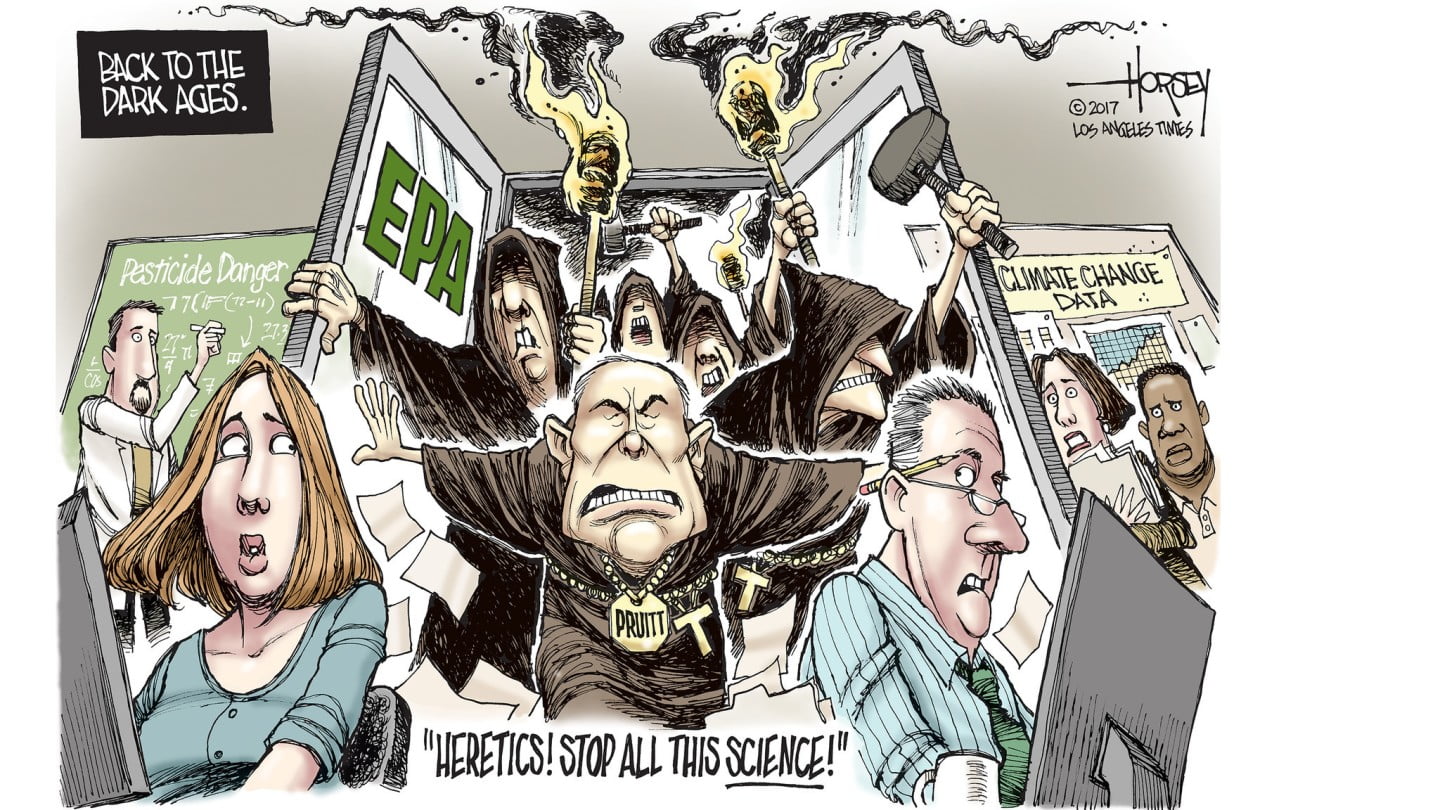
Horsey—Words and Pictures, Seattle, owner, 1993—; Academy of Realist Art, Seattle, instructor, 1998; active in local educational and youth athletic organizations; member of the advisory board, University of Washington College of Arts and Sciences. Exhibitions: Cartoons exhibited at Art Institute of Seattle, 1992, Michael Pierce Gallery, Seattle, 1997, Shoreline Country Club, 1999, and Frye Art Museum, Seattle, 2004.
Member:
Society of Professional Journalists, Association of American Editorial Cartoonists (president-elect, 1999-2000, president, 2000-01).
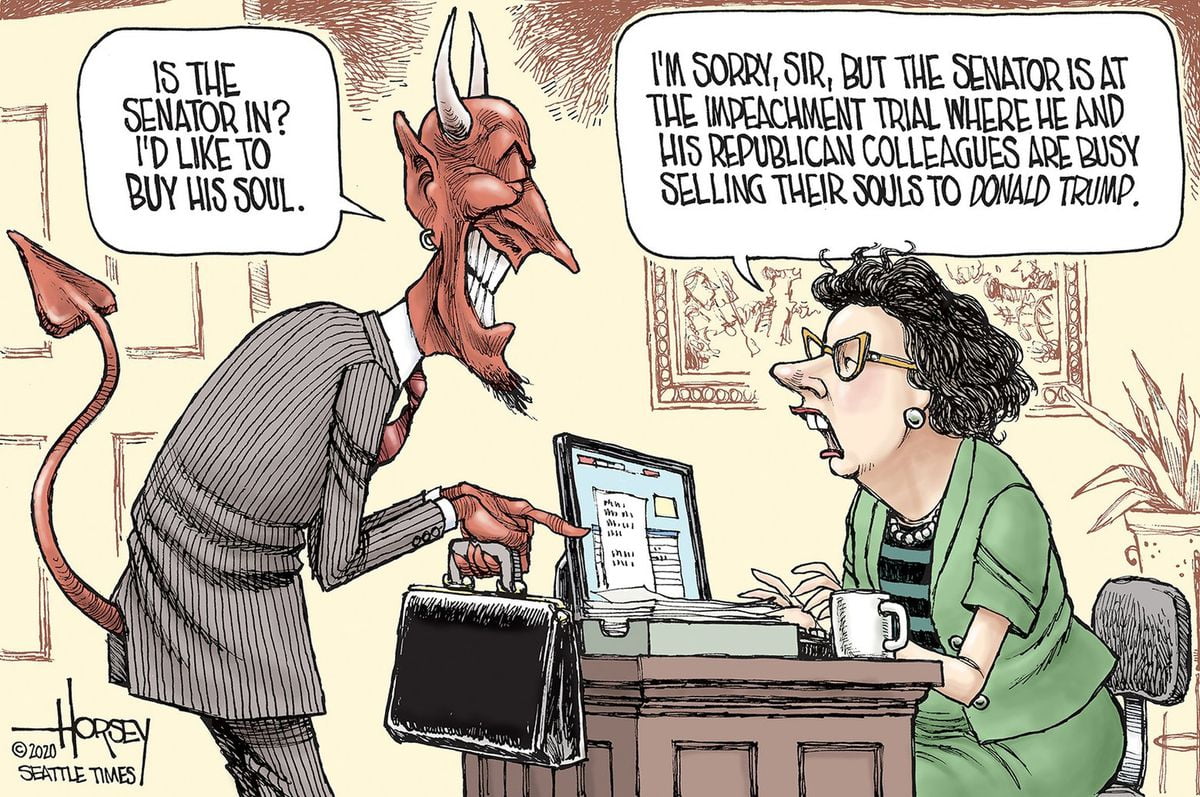
Awards, Honors:
Pulitzer Prize for Editorial Cartooning, finalist, 1987; Global Media Award, Population Institute, 1991; Best of the West Journalism Competition, first place, 1994; Environmental Media Award, 1995; First Place for Editorial Cartooning in the Pacific Northwest, Society of Professional Journalists, 1997; Berryman Award, National Press Foundation, 1998; Pulitzer Prize for Editorial Cartooning, 1999, 2003; Susan Hutchinson Bosch Award, Society of Professional Journalists, 1999; numerous other awards.
Writings:
- “Politics and Other Perversions” (Published in 1974).
- “Horsey’s Rude Awakenings” (Published by Madrona Publishers, Seattle, WA, in 1981).
- “Horsey’s Greatest Hits of the ’80s” (Published in 1989).
- “Cartooning AIDS around the World” (Co-edited with Maury Forman, published by Kendall/Hunt, Dubuque, IA, in 1992).
- “Farewell Warfare” (Cartoonist: Mary Waterhouse, Foreword by Whoopi Goldberg, published by Peanut Butter Publishing, Seattle, WA, in 1992).
- “The Fall of Man” (Published in 1994).
- “One-Man Show” (Published in 1999).
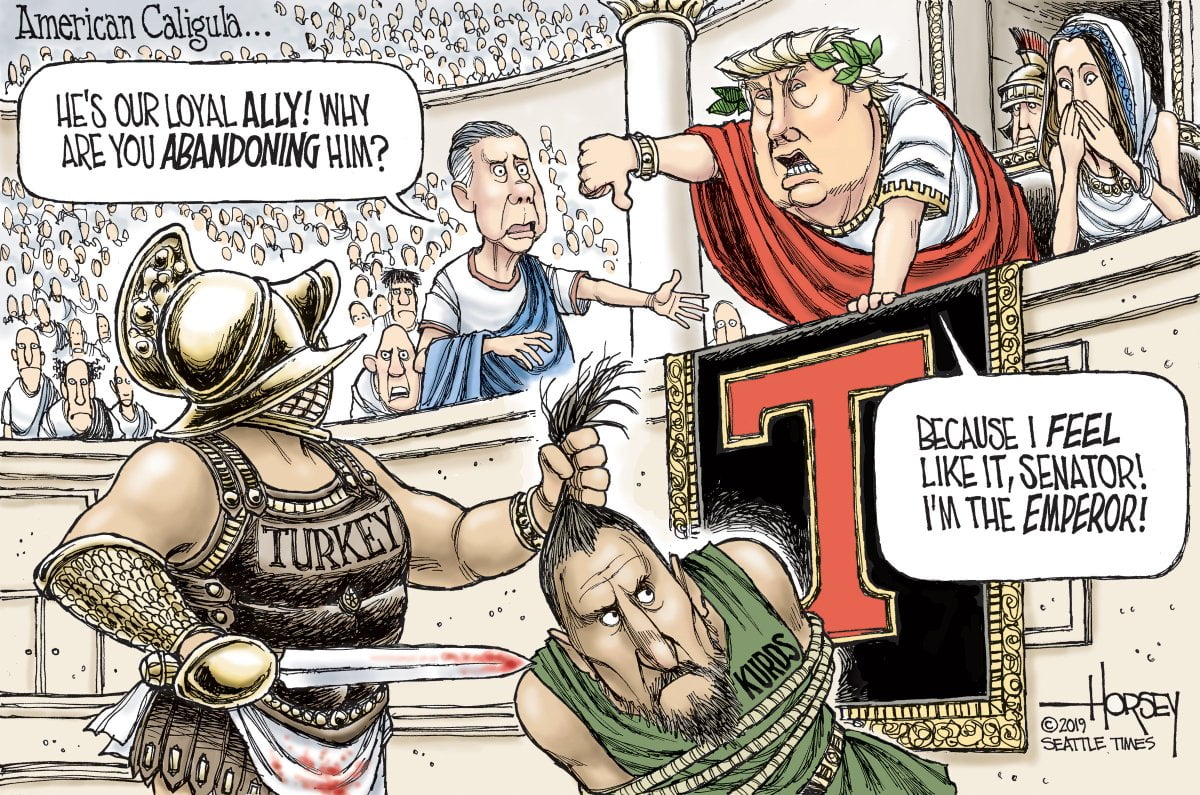
Sidelights:
David Horsey is a Seattle, Washington-based political cartoonist and columnist whose cartoons have earned him the Pulitzer Prize for Editorial Cartooning in both 1999 and 2003. On the staff of the Seattle Post-Intelligencer since 1979, Horsey’s popular columns and cartoons helped keep the newspaper afloat during the late 1980s, as competing dailies threatened Intelligencer market share.
Because of a joint operating agreement with a competing citywide daily, the Seattle Post-Intelligencer has continued to provide Horsey with a forum for his barbed wit and humorous take on the fine art of political partisanship. He credits the Monica Lewinsky scandal that rocked the White House in the mid-1990s for providing with him the material that earned him his first Pulitzer.
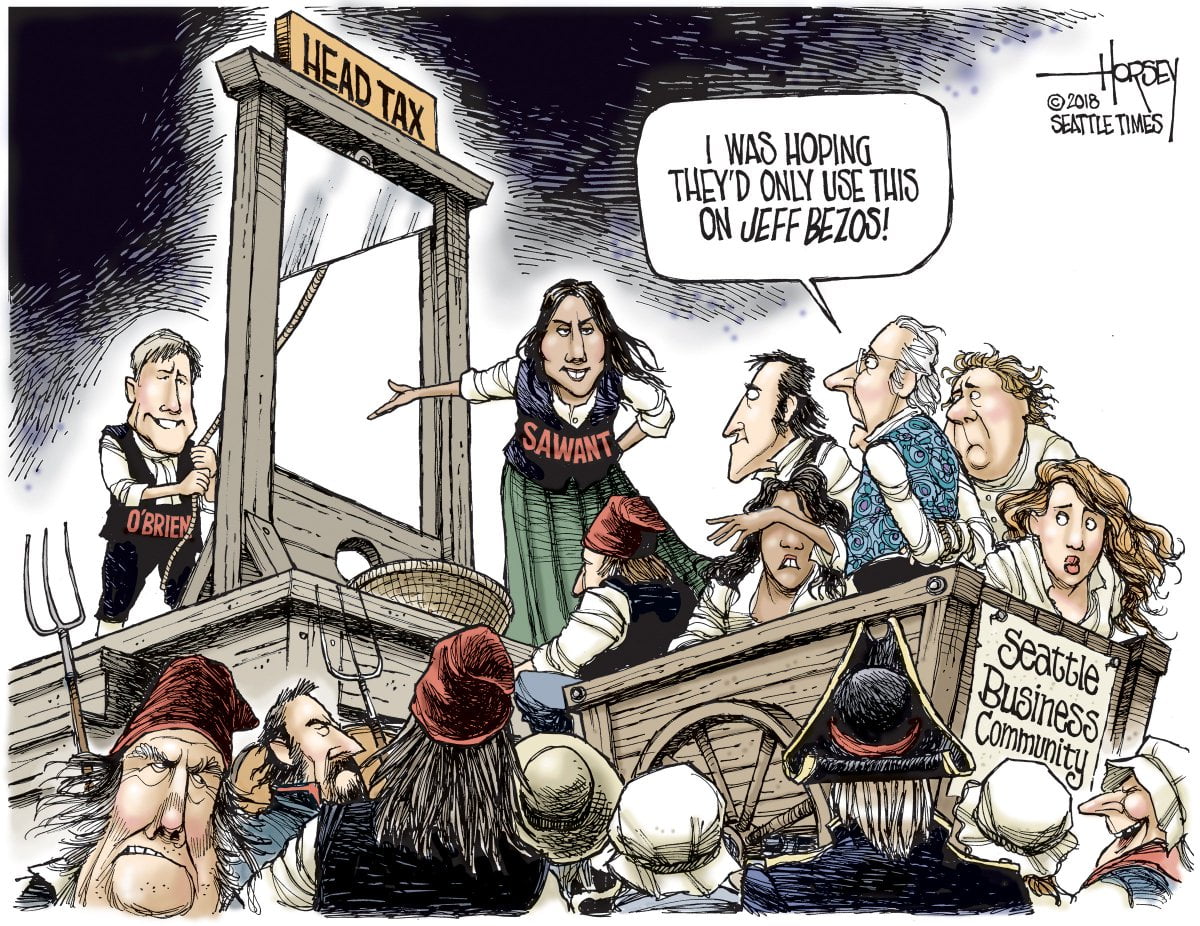
Horsey’s cartoons have found a broad audience, appearing in numerous newspapers across the United States. These works have been compiled into anthologies, starting with “Politics and Other Perversions” in 1994. His artistic style bears the influence of colleagues like the renowned cartoonist Oliphant. At the same time, the echoes of Mad magazine’s irreverence are also discernible, a fact acknowledged by critics and devoted fans.
In describing his political stance, Horsey identifies as a “radical centrist,” a viewpoint explored in an American Editor article. He values freedom from not being tethered to a particular ideology. Horsey elaborates, “I try to avoid being excessively driven by ideology. Firstly, my preferred subjects are those entrenched in extreme ideologies, whether on the left or right. Secondly, abstaining from easy answers prevents me from creating overly simplistic and shallow cartoons.”
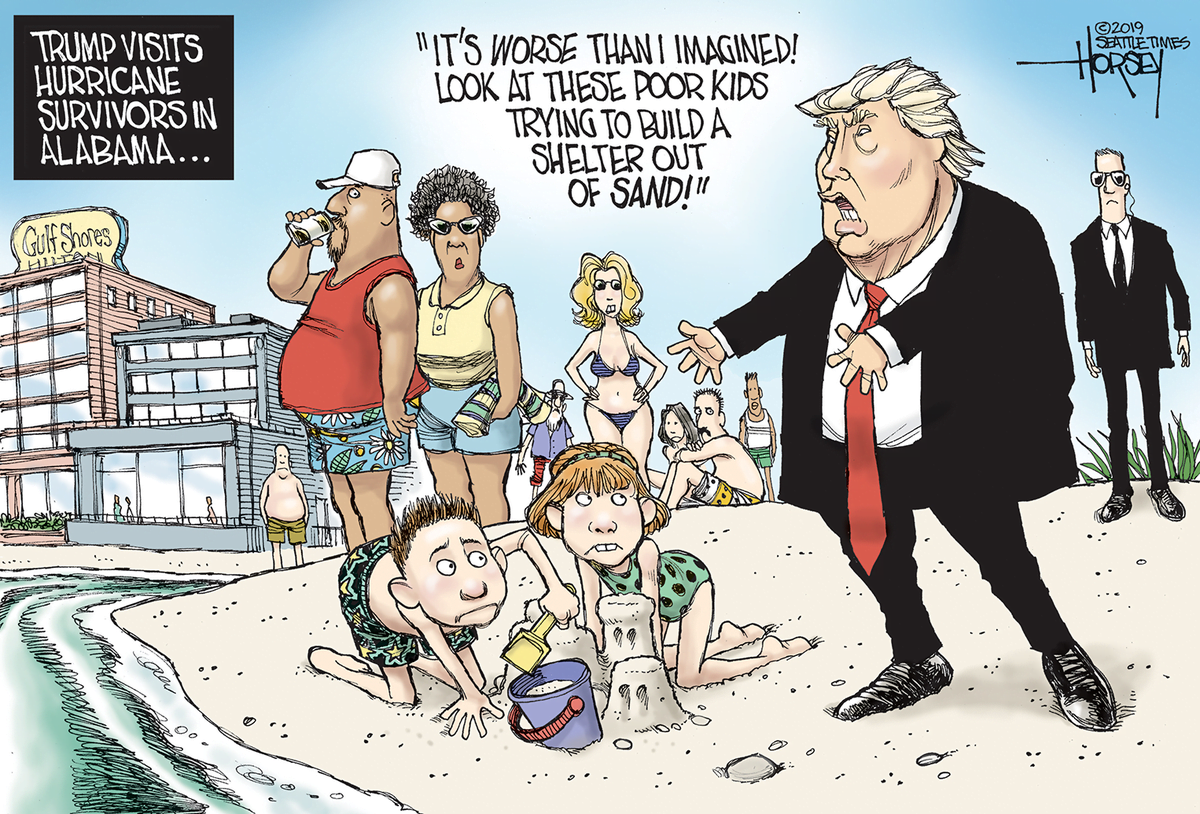
Horsey approaches his role as a cartoonist with a profound sense of purpose. He regards cartoons as a gateway to the world of newspapers, as he once explained to Dave Astor, a writer for Editor and Publisher. In his words, “Cartoons are a point of entry into newspapers,” offering people a focal point for lively debates. He acknowledges that cartoons possess a dedicated and sincere readership, emphasizing their significance.
Writing for the Seattle Post-Intelligencer, Peter Bagge aptly noted that editorial cartooning needs to be more complex. To provide witty and concise commentary on the latest news every single day is no small feat. However, Horsey excels in this demanding task, consistently delivering sharp insights. Despite the demanding nature of his work, the typical response he receives often amounts to a flood of emails critiquing his viewpoints. Yet, he perseveres in his mission.
Since the inception of the Pulitzer Prize for editorial cartooning in 1922, only ten other cartoonists have achieved the distinction of being multiple Pulitzer winners, placing Horsey among this elite group of accomplished individuals.
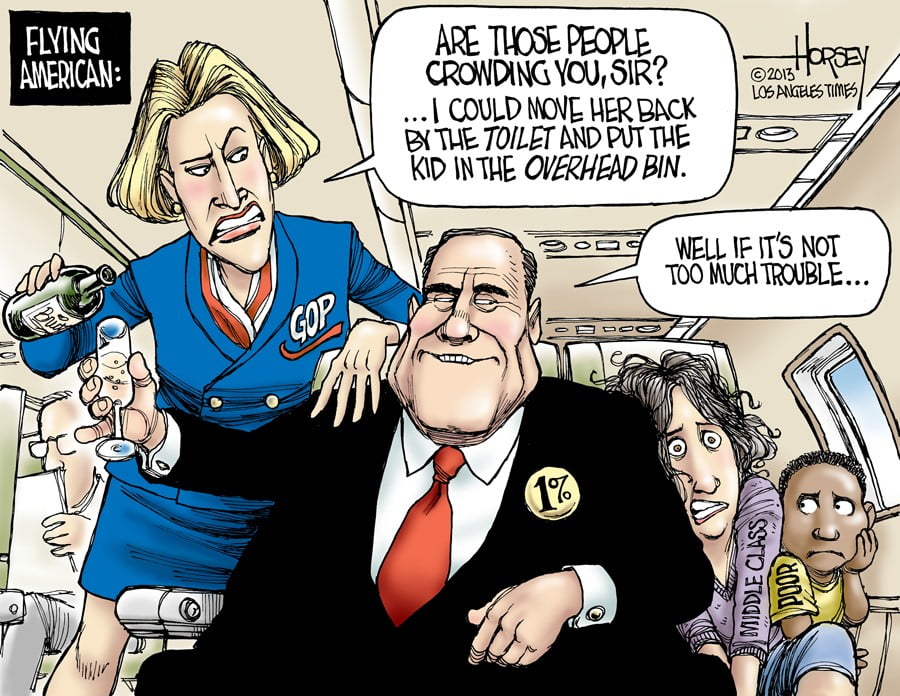
Biographical and Critical Sources: Periodicals
- American Editor, December 1996, features an article on David Horsey, found on page 32.
- In Editor and Publisher, dated April 14, 2003, David Astor discusses “Pulitzer 2003” and its relevance, covered on page 22.
- On February 28, 2004, the Seattle Post-Intelligencer published an article by Peter Bagge titled “Horsey Hits Targets with Precision and Style.”
Read also: William Ellis Green (1923 – 2008)
FAQ about David Horsey
Q1: Who is David Horsey?
A1: David Horsey is an American editorial cartoonist and commentator known for his impactful career in editorial cartooning.
Q2: What are some notable achievements of David Horsey?
A2: David Horsey is a two-time Pulitzer Prize winner for Editorial Cartooning, receiving the award in 1999 and 2003. He has also received the Robert F. Kennedy Journalism Award for his cartoons related to social justice issues.
Q3: Where did David Horsey receive his education?
A3: David Horsey attended the University of Washington, where he graduated with a degree in communication studies. He also earned a master’s degree in international relations from the University of Kent in England in 1986 and received an honorary doctorate from Seattle University in 2004.
Q4: Which newspapers have featured David Horsey’s cartoons?
A4: David Horsey’s cartoons have appeared in the Seattle Post-Intelligencer from 1979 until December 2011 and in the Los Angeles Times since then. His cartoons are syndicated to newspapers nationwide by Tribune Content Agency.
Q5: What are some of David Horsey’s political cartoon collections?
A5: Some of David Horsey’s collections of political cartoons include “Politics and Other Perversions,” “Horsey’s Rude Awakenings,” “Horsey’s Greatest Hits of the ’80s,” “The Fall of Man,” “One Man Show,” “From Hanging Chad to Baghdad,” “Draw Quick, Shoot Straight,” and “Refuge of Scoundrels.”
Q6: What controversy surrounded David Horsey’s column in the Los Angeles Times?
A6: In November 2017, David Horsey wrote, “Sarah Huckabee Sanders is the right mouthpiece for a truth-twisting president” in the Los Angeles Times. He faced criticism for disparaging remarks about the appearance of Donald Trump’s press secretary, Sarah Huckabee Sanders. However, he later updated the column with an apology and removed the comments about Huckabee.
This post was created with our nice and easy submission form. Create your post!




